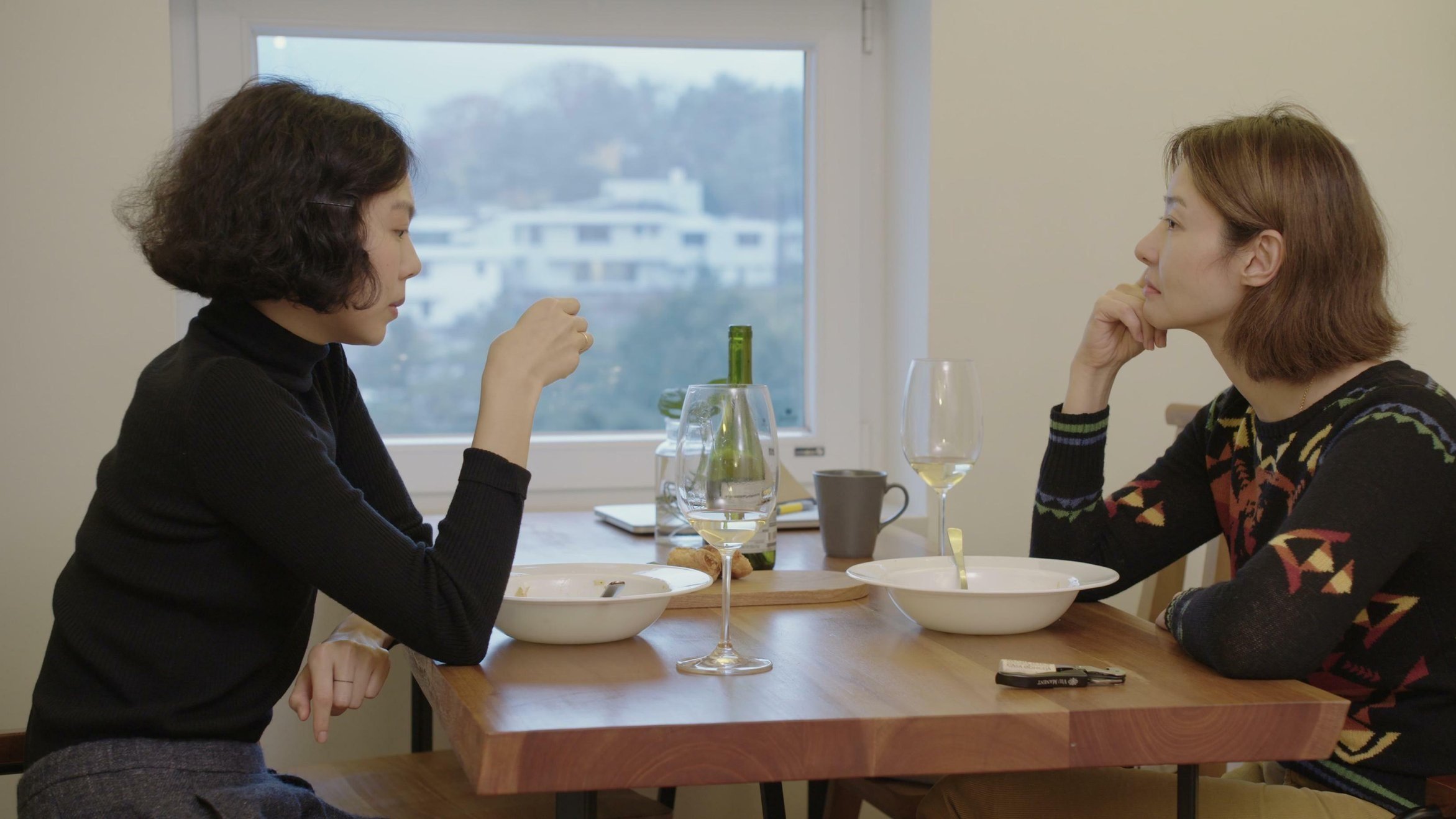The Woman Who Ran
A masterly director from South Korea is at last revealed at his peak.
In 2013, Hong Sangsoo's film Nobody's Daughter Haewon was released here and I did not take to it at all. Consequently, I approached this latest work of his hesitantly even though one critic who admired Hong had declared back then that the wrong film had been chosen to introduce him to British audiences unfamiliar with his work through titles screened at the London Film Festival. In the circumstances, The Woman Who Ran is for me a revelation because it is a full achieved masterpiece that speaks in a manner that is entirely its own. It is also a work that is perfectly cast and flawlessly played. Being somewhat minimalistic in tone, it is not a film that will appeal to everyone, but if you can get on its wavelength it emerges as one of the very best films of 2020.
The Woman Who Ran is a film that eavesdrops on life and does so from a female perspective which, so far as I can judge, is utterly persuasive despite the fact that Hong is working from his own screenplay. We are invited to spend time with Gamhee (Kim Minhee) as she visits three friends. Married for five years to a man so devoted that he has been by her side throughout but who is currently away on a business trip, she now has time on her own for once. The opening scene shows her driving into the countryside to see a friend (Seo Younghwa) who is divorced and living with a female room-mate (Lee Eunmi) who cooks for both of them. Female small talk between these three - so important to the film and so effortlessly caught - becomes a feature of this first section of the film which also includes an hilarious exchange with a new neighbour who wants them to stop feeding cats that are upsetting his wife.
The two subsequent segments find Gamhee in Seoul. In the first of these she calls on Suyoung (Song Seonmi), an unmarried woman who talks of having fun but has found men unreliable and is uncertain about her future. Her third meeting appears to be by chance when, visiting a cinema and its adjoining café, she encounters an old friend named Woojin (Kim Saebyuk). In finding a husband for herself Woojin had stolen him away from a relationship with Gamhee and now takes this opportunity to apologise.
The Woman Who Ran is a film filled by talk rather than by events, but Hong's restrained and stylish direction, often favouring static shots and rendering the rare close-up compelling, encourages the audience to speculate. Of the women we see, each one is in a contrasted relationship. Two are married, one to a faithful but possibly suffocating man, another to a celebrity intent on courting popularity. As for the unmarried state that is satisfying in the case of the divorcee but problematic for Suyoung, the woman who has never achieved it. Which of these is happy and which mode of life has the greatest value? The Woman Who Ran lasts for only 77 minutes and seems like a miniature, yet it invites much rewarding thought about life and it is all the stronger for being open and raising questions in preference to offering answers. All the females portrayed are splendidly real and individual, but Gamhee seen throughout the film is its central figure. The final scenes are hers and are quite wonderfully ambiguous in the sense that they encourage every viewer to form their own conclusions about her state of mind.
Original title: Domangchin yeoja.
MANSEL STIMPSON
Cast: Kim Minhee, Seo Youngwha, Lee Eunmi, Song Seonmi, Kim Saebyuk, Shin Seokho, Ha Sunguk, Kwon Haehyo.
Dir Hong Sangsoo, Pro Hong Sangsoo, Screenplay Hong Sangsoo, Ph Kim Sumin, Ed Hong Sangsoo, Music Hong Sangsoo.
Jeonwonsa Film Co-MUBI.
77 mins. South Korea. 2020. Rel: 11 December 2020. Available on Curzon Home Cinema and MUBI. No Cert.


